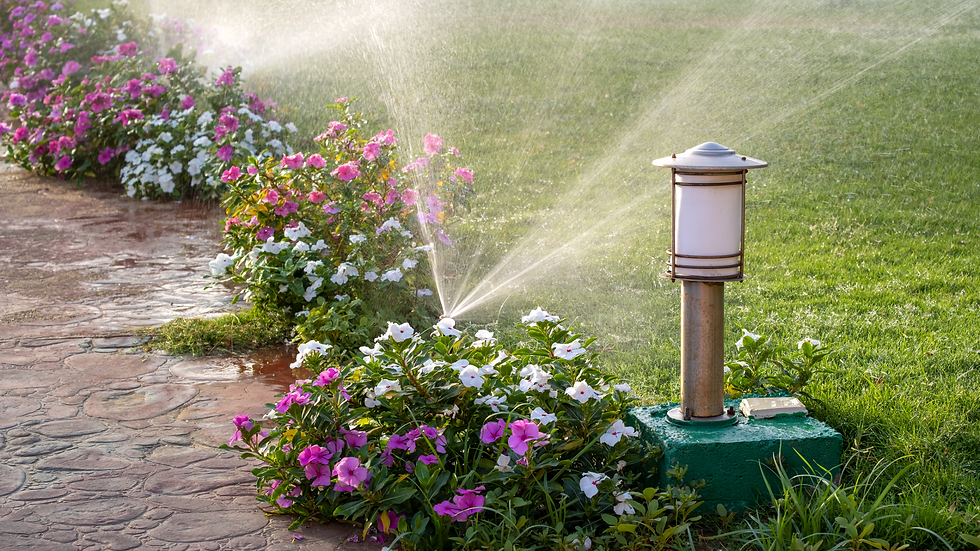
For most property managers looking after large outdoor spaces, water is often their biggest cost. With the price of water going up every year, this can also be your biggest opportunity for savings.
If you are looking to save on your water bills, a properly installed and maintained irrigation system should be your top priority.
Once that’s in place, though, there are still some things you can do:
Keep track of when you water your plants — The best time to water plants? From early morning to around 10 a.m. This allows the plants to get properly hydrated before the sun is at its peak. The second best time? Early evening, just before sunset. Watering in the middle of the day, when the sun is at its peak, causes the water to evaporate — before your plants can absorb it.
Mind how you water — Plants and turf prefer heavy, less frequent watering once or twice a day over light, shallow watering over the course of a day. Heavy watering allows the water to totally saturate the soil, giving roots more time to absorb!
Use native plants whenever possible — Native plants can do wonders for a landscape. Not only are they adapted to the climate of your particular region — they’ll be able to thrive regardless of how much rain you get. In fact, certain mature plants can get by with no irrigation whatsoever.
Keep your trees healthy — The more shade on your property, the better. Shade will lower temperatures (and slow evaporation) throughout your property and allow your turf and gardens to survive with less water.
Mulch is your garden’s best friend — Mulch drastically prevents the evaporation of water. It also stops weeds from growing and keeps your gardens cool. Nice, tidy-looking garden beds are an added bonus.
Aerate your turf — Lawn aeration involves poking holes in your turf by a machine with small tines. Aeration reduces soil compaction, allowing nutrients and water to get to the root systems of your grass. As for water savings? It prevents runoff during storms, which means your precious turf has more time to absorb water. Ideally, aeration is done once a year.
Install permeable pavers — If your property is near wetlands or has existing drainage issues, you could benefit from permeable pavers replacing your asphalt or concrete surfaces. Many towns are now requiring permeable pavers to reduce runoff and erosion into nearby wetlands. The process involves the installation of different sizes of washed gravel in layers. This surface has larger joints that allow water to seep through — without runoff. The water drains through the surface, which acts as a filter system before the water enters the native soil below it. In parking lots, driveways and walkways, more water is able to reach surrounding soil… keeping your landscape healthier and reducing runoff at the same time!
Remember, the first step to water savings is a properly functioning irrigation system. Our irrigation audit process takes into account all areas of your property that needs water. From there, we install or retrofit a smart irrigation system that will only use water when it needs to. In fact, some areas of your property may not need water anymore.
With water prices continually on the rise, you can be proactive by lowering your water use. By following our tips and properly installed irrigation system, you can start saving money. Contact us today to learn more about our audit services. We’re looking forward to helping you save water!
